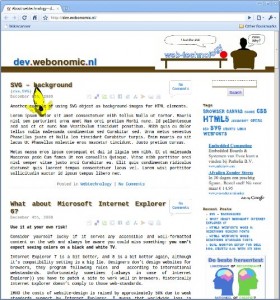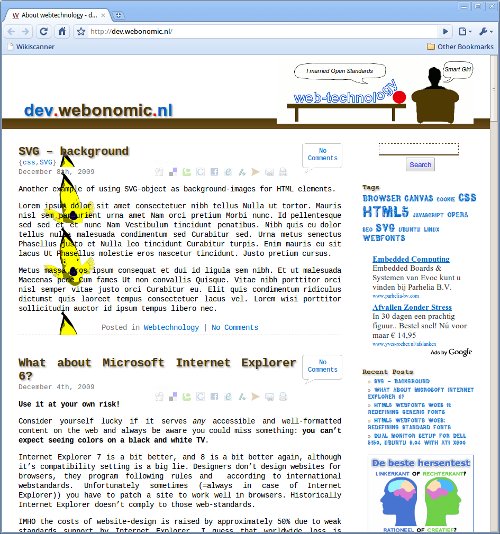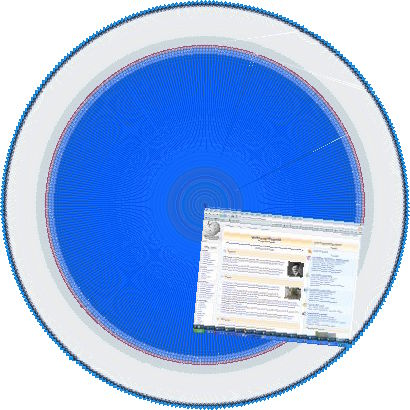I always liked Opera’s support for SVG, and I really welcomed their initiative to treat SVG as any other image type, like jpg or gif or png. After all SVG (Scalable Vector Graphics) is a vector-image mark up language (XML), like Flash or Silverlight but free and it’s an Open Standard.
Round corners, gradients, multi-image background, watermarks, nearly everything (animation?) can be handled by SVG, so it’s quite a powerful feature. Creating a dataURL of SVG is possible, so creating a CSS file with several gradient backgrounds, round borders is indeed a very efficient way of designing webpages. It’s cached, and although the initial css file is a bit heavier, no extra server requests are needed to load additional images. It’s fast, lean and flexible.
I’m glad to see Google Chrome as the first other main browser join Opera in support for SVG images as backgrounds in CSS declarations.
Chrome’s implementation isn’t without errors, see what happens if you start scrolling the webpage in the brand new Chrome for Linux beta, but is a start. I hope Mozilla/Firefox and Apple/Webkit will follow soon.
I’ve given up expectations for Microsoft Explorer, see my other post. To be short: they wanna sell their Silverlight.
I’m not without any hope, :), I hope Internet Explorer users will start using other webstandard compliant browsers and consequently MS marketshare will drop significantly. Only then they probably will convert to an attitude of supporting and promoting open standards.




